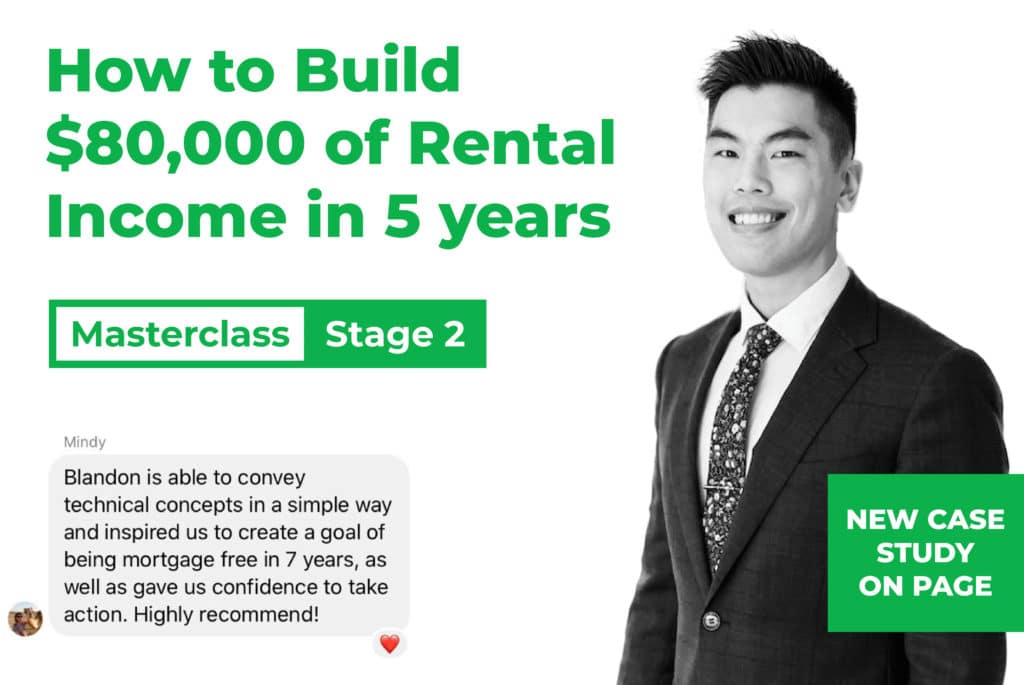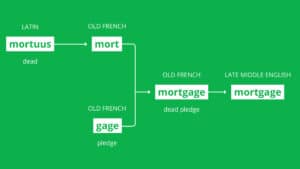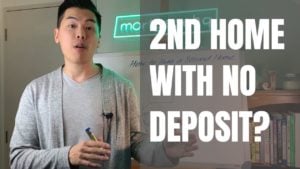Let’s talk about mortgage interest rates.
So, maybe your refix is coming up, or you’re going to buy a new property, or you’re keen to see what the interest rates are for mortgages at the moment. Well, what you have got to understand is the rates that are on interest.co.nz, or Mortgage rates sites, or the things that you see on billboards, or TV, or radio ads, those interest rates are not always the interest rates that you’re going to be offered.
Interest rates vary for a lot of different reasons between banks and even at the same bank for many different reasons like what’s your LVR, where is your property, how much your mortgage is. There are a bunch of things that come into play when you’re trying to negotiate the best interest rates that you can.
What you should know is that when you work with a mortgage adviser (mortgage broker), it’s actually a free service and we can often help you negotiate better rates or structures or terms for a refix at your current bank and give you an indication of what interest rates and mortgage options you’re going to get with other banks. We’re able to see what the pricing information is between all of the banks in real-time because of the volume of business we do.
You’ve got to understand that week by week the interest rates are changing all the time. Demand from each of the banks for premium clients changes over time as well. Banks will come in and out of the market. To make sure that you get the best deal, you really should consider working with an experienced mortgage adviser that has good volumes in play.
Above and beyond just making sure you get the best rates, you’ve got to take into account, “Okay, is what I see what I get?” And we cover that. Interest rates that are being advertised are often not the lowest that you’re going to be able to get. And, what bank is best for you? So, if you’re already with a bank and you think, “I just want to get the best deal at my bank,” you have to understand that by refixing at your current bank and not moving, you potentially are missing out on a better offer somewhere. Which is totally fine if you are satisfied with the service and products and offer from your current bank.
Now, you shouldn’t just move for the sake of moving. If you can get a good enough deal without shifting then you don’t have to go through the process of changing banks. But, you have got to understand, changing banks is relatively easy. You will talk with your lawyer and open the new bank accounts so the incentive needs to be there.
If you’re going to get a $3000, $4000, $5000 benefit of switching then maybe you want to take that option more seriously. The bank that’s best for you is going to be dependent on what sort of rewards points you want on your credit card and what sort of bank products you want to use like revolving credits or offset accounts. Whether you want the ability to redraw or have your family savings all in one place. There are many moving parts and things to consider.
If you just take the face value of choosing a bank based on the rates, that’s probably not the best way to go about it. Mortgages are, 10, 20, 30-year proposition, and you have got to find the bank that’s probably going to be with you for that time.
You might be with a bank for 10 years so it’s an important decision to make. And, generally speaking, what we will do is say, “Hey, choose a bank that fits your future goals.” So, you might be buying your first place but you think, “I want to buy another property in two years’ time,” what do you think is going to be the bank that’s going to allow for maximum borrowing power? What do you think the bank’s going to be best for, maybe you’re self-employed, that’s going to allow me to use my projected financials, for example? To see the difference between banks read this page where we compare the borrowing power calculators from five major banks.
Things like that, that when you work with a mortgage adviser, you talk about your future goals, you don’t have to be worried about saying anything that might get you in, you know, in trouble with the banks. You can, you know, talk in confidence with a mortgage adviser. Now, bear in mind if you say, “Hey, look, my wife is pregnant, 30 weeks pregnant, can we not tell the bank?” We can’t not tell a bank.
We legally have to fully disclose things that are important for the bank to know, but there are things like, “Hey, my parents are going to stop working and they guaranteed the property and we need to get all this done,” and there’s a lot of different things that come into play with mortgages when you work with a mortgage adviser, you benefit from nuanced advice.
When it comes to interest rates, don’t rely on what’s being advertised, talk to, if you’ve got friends, or family, or ex-colleagues that are mortgage advisers, talk to them about what they’re seeing and then, you know, maybe talk to one of the mortgage advisers about refixing, or refinancing, or new purchases, or just about your future goals.
What is Mortgage Cashback?
A cashback is a sum of cash the bank will give back to you as an incentive for becoming a new customer. No, it is not typically delivered in a suitcase, but yes it is money that is deposited straight into your account.
This is a specific article about mortgage cashback, to learn everything you need to know about mortgages please read our overview. Cashback offers change all the time. In the past offers have been as high as 1% of funding and so low it is barely worth mentioning. For example, if you had an $800,000 mortgage and received 0.8% cashback that would be $6,400 deposited into your bank account. We do hear of people saying ‘my manager said they don’t do cashback anymore…’ well, that is not our experience. Cashback is alive and some banks are still offering big incentives for new customers.
To see a snapshot of cashback over the last few years, take a look at these NZ Herald links.
- NZ Herald 2018 – ANZ offering $3,000 cashback.
- NZ Herald 2017 – banks offering $3,000 – $5,000 on average.
- NZ Herald 2014 – ASB, ANZ & BNZ offering $3,000 cashback.
- NZ Herald 2012 – Westpac & ANZ offering $1,000 cashback + $1,000 towards legal costs.
When negotiating a new lending offer (either a new purchase or by taking your unpaid mortgage lending and refinancing to a new bank), you may get discounted interest rates and a cash-back offer. Sometimes known as a cash incentive, cash offer, cash-back, cash-money. Whatever you’d like to call it, it’s an essential part of a competitive offer. Banks are most willing to provide these offers for lending over your primary place of residence, or over-investment properties when you’re also able to give them your primary residence as security.
The amount of cash a bank will be willing to give you depends on your profile and a variety of factors. Some of the factors are; what the Loan to Value ratio (LVR) of your deal is, if you are trying to get an interest-only mortgage, how much income you are earning, and how large the loan is. Kiwibank (at the time of writing) will often take it a step further by not only paying cashback but also paying for legal fees and matching other bank offers. mortgagehq.co.nz is one of a select few mortgage broker companies able to work with Kiwibank.
Understanding your cashback agreement and break fees
When banks give you a cash incentive, it’s generally to reward you for coming on-board as a new client, and it’s usually used to incentivise you to stay as a customer of the bank for a few years MINIMUM. Each bank will lock you in for a different amount of time, and these cash incentive agreements are bank-wide and completely non-negotiable.
- BNZ has a 4-year agreement, with a reducing commitment each year
- Westpac, ANZ, ASB & Kiwibank all have a 3-year agreement
- Other NZ banks vary but generally range from 2 to 4 years.
Updated December 2018, please check your loan documents carefully – the cashback period will be spelt out and we can’t guarantee up to date information on the website. Of course, if we are advising you that this is one of the strategies your mortgage adviser will workshop with you to ensure you get maximum value.
While the BNZ’s cashback agreement ties you in for the longest period of time, each year they will reclaim 25% less than the year before if you leave. For example, if you were to switch banks or repay your lending with the BNZ after 2 years, they would reclaim 50% of the money you were originally gifted, while the other banks would reclaim the full 100% all the way through until the end of the agreed period. Each has its pros and cons, which should be considered when discussing the right option for you with your mortgage adviser.
If you refinance within your cashback period, the bank will definitely reclaim this gift to you. If you repay all of your debt because you’ve sold your house, they are likely to make you repay your cash incentive. If, however, you only repay a portion and retain some of your lending with the bank, it’s unlikely they will ask you to repay the offer.
The repayment of cashback is a different factor to early termination fees/break fees – which are based on the remaining term of your fixed interest rate term.
Mortgages with non-bank lenders
If you’re looking for a mortgage without income proof, or your financials don’t show that you’ve had strong income for a long period of time, maybe you’ve started a new business or you’ve switched businesses, what you’re probably going to need to use is a…it’s called a non-bank, or a second-tier lender. And you really shouldn’t be scared of that terminology, it’s just banking jargon and mortgage broker jargon for a non-advertised main bank.
So you’re probably, with the income evidence or lack thereof, not going to be able to use those main banks you see on TV, probably going to have to go through a mortgage adviser. Get the application all sorted out before you submit, and just, depending on whether you’re using low documentation, or no documentation, understand what your short-term plan is to get settled in this property, and then what the plan is to get refinanced after 6-24 months, maybe even a bit longer, back to the main bank.
Mortgage brokers organise lending across a huge variety of banks, and non-bank lenders if you’d like to get a view on what the market can offer you, talk with an adviser today.













